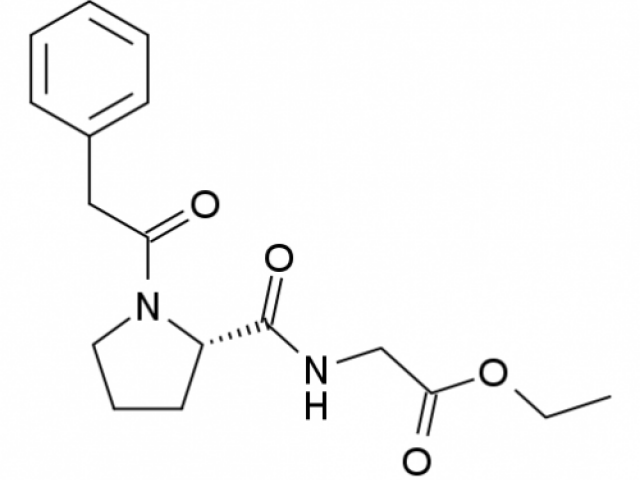What Is Noopept?
Noopept is a brand name for a synthetic nootropic molecule that is called N-phenylacetyl-L-prolylglycine ethyl ester in scientific circles; no wonder they came up with a shorter version for lay people! It has been commonly prescribed in Russia, where it was developed, for several decades and has only recently made its way into the American market as a nootropic.
It’s similar in effect and structure to Piracetam, a class of compounds that can provide a small cognitive boost in some users, but it is significantly more potent, up to a thousand times more than similar supplements on the market. This allows users to achieve results similar Piracetam with a much smaller dosage of Noopept.
Right now, the evidence of its efficacy as a nootropic is mostly anecdotal, but some preliminary studies suggest (and some users report!) better memory, more fluid conversations, and an easier time learning new things. There is also evidence to indicate that Noopept could help heal the brains of stroke victims, but more research is needed.
How does Noopept work?
Like a lot of nootropics, its exact mechanisms of action aren’t completely clear. Since Noopept is generally taken orally, it enters your system through your GI tract. It activates when the body metabolizes Noopept into cycloproylglycine. From there, three things may happen: Noopept increases oxygen within the brain, it increases the glucose metabolism of the brain, and it travels to glutamate receptor sites. Noopept acts fast, peak efficacy is about fifteen to twenty minutes after ingestion.
Increasing the oxygen in the brain helps you feel clearer, which may explain why a lot of users report feeling less foggy and sharper when they take Noopept. In the same way short bursts of exercise can help in the immediate with higher brain functions like impulse control and inhibition by supplying a jolt of oxygen, it’s possible that Noopept could kick your brain into high gear temporarily.
Since the brain feeds on glucose, the improved metabolism Noopept may provide gives it more energy to feed on, freeing the brain up and making it more focused and clearer.
Studies suggest Noopept can also help to slow the breakdown of glutamate. Glutamate is a neurotransmittor in charge of excitatory signals and is responsible for most aspects of normal brain function, like memory, learning, and cognition. Noopept binds with glutamate receptor sites to inhibit glutamate’s collapse. Noopept also energizes the receptor sites during this process so that they’re more sensitive to glutamate and activate more quickly.
With Noopept, as with any supplement, it’s very important to manage your expectations for what it can and can’t do. Right now, the research suggests Noopept may be most beneficial to brains that have been somehow harmed, whether that be as a result of a stroke, a degenerative disease, or a traumatic brain injury. For unimpaired brains, the effects seem to vary a lot from user to user. Some people report little to no impact, while others experience slight boosts in memory, and still others find their cognitive abilities significantly increased.
Where do I get Noopept?
Many users choose to take Noopept by itself, but if you’d rather take Noopept as part of a more complete nootropic blend, Lumonol includes a significant amount of Noopept in the mix. Between ten and thirty milligrams a day for up to 56 days is considered safe since it’s not intended to be part of a long-term daily routine. Instead, use Noopept when you feel you need an extra boost. Taking too much can have some undesired effects, like short-term memory loss, and taking it for too long can diminish its ability to impact your brain chemistry. Stick to the recommended dose for best results.
Have you taken Noopept? Did you find it made your memory stronger? Did it make you more conversationally fluent? Tell us about your experiences in the comments.
Photo: Noopept, by Benrr101, via Wikimedia Commons.


